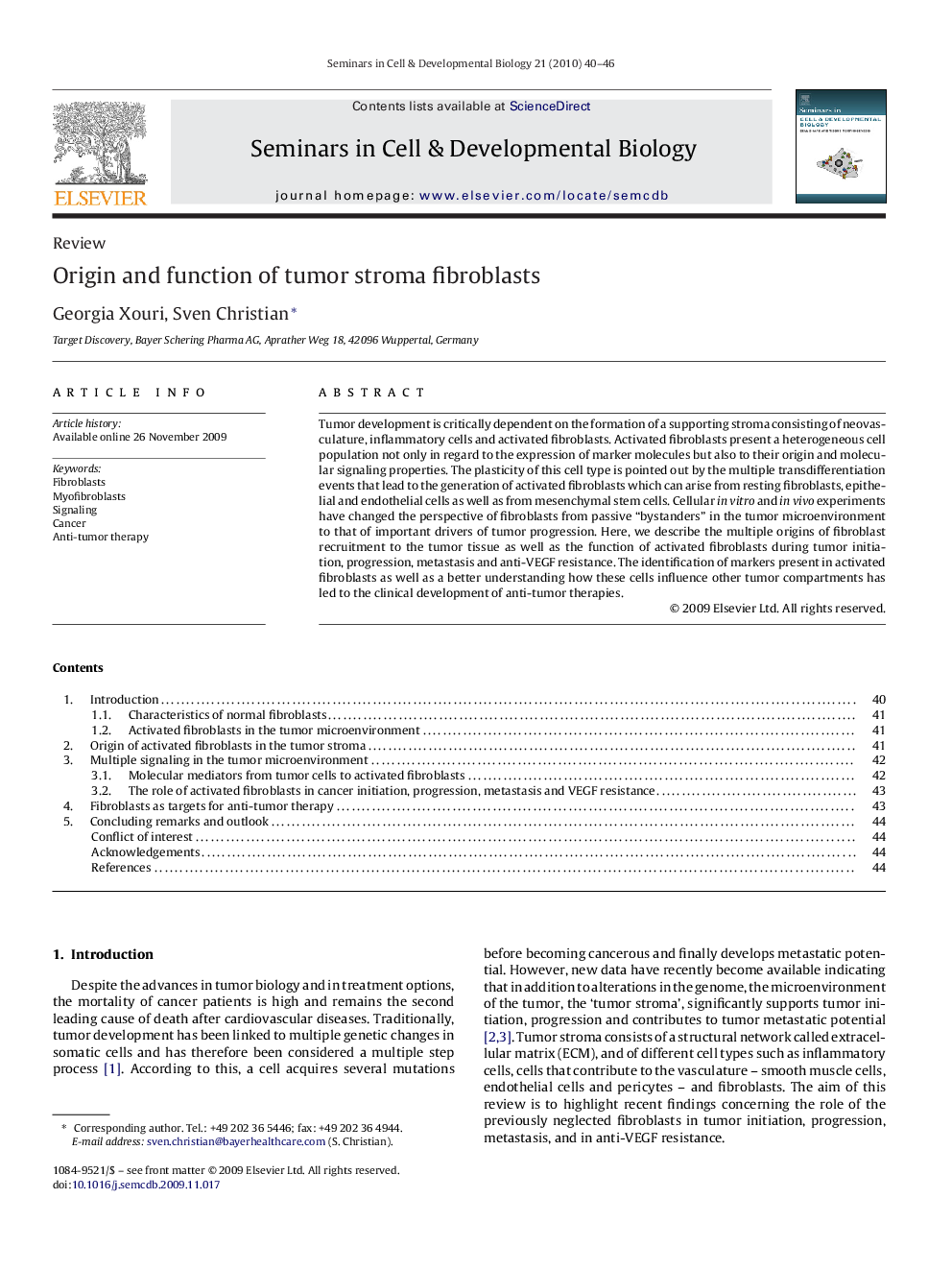| Article ID | Journal | Published Year | Pages | File Type |
|---|---|---|---|---|
| 10959263 | Seminars in Cell & Developmental Biology | 2010 | 7 Pages |
Abstract
Tumor development is critically dependent on the formation of a supporting stroma consisting of neovasculature, inflammatory cells and activated fibroblasts. Activated fibroblasts present a heterogeneous cell population not only in regard to the expression of marker molecules but also to their origin and molecular signaling properties. The plasticity of this cell type is pointed out by the multiple transdifferentiation events that lead to the generation of activated fibroblasts which can arise from resting fibroblasts, epithelial and endothelial cells as well as from mesenchymal stem cells. Cellular in vitro and in vivo experiments have changed the perspective of fibroblasts from passive “bystanders” in the tumor microenvironment to that of important drivers of tumor progression. Here, we describe the multiple origins of fibroblast recruitment to the tumor tissue as well as the function of activated fibroblasts during tumor initiation, progression, metastasis and anti-VEGF resistance. The identification of markers present in activated fibroblasts as well as a better understanding how these cells influence other tumor compartments has led to the clinical development of anti-tumor therapies.
Related Topics
Life Sciences
Biochemistry, Genetics and Molecular Biology
Cell Biology
Authors
Georgia Xouri, Sven Christian,
